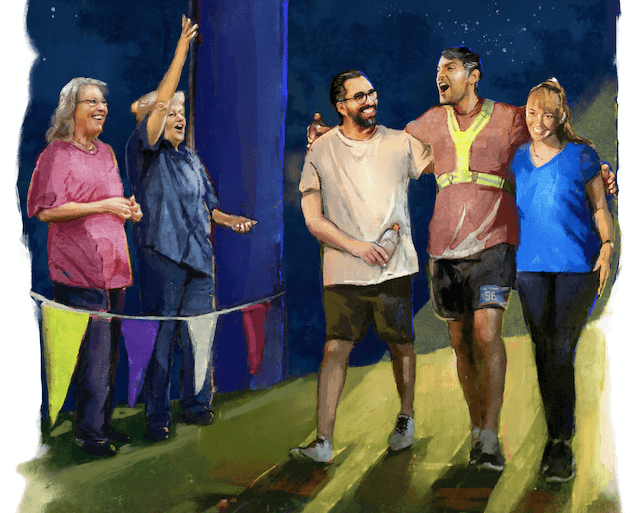When my oldest son told me that he intended to run the Daytona 100, a 100-mile ultramarathon in Florida from Jacksonville to Daytona, I thought he was nuts.
A cluster of fatherly cautions popped to mind: What if you permanently damage your knees? Shouldn’t you get a doctor’s OK first? What if you drop dead?






